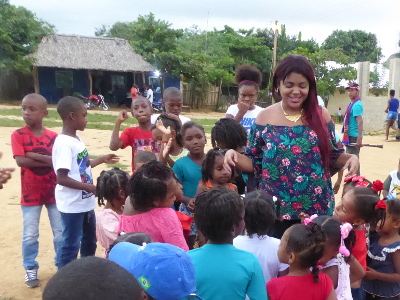 About the work of the Methodist Church in Brisas del Mar
About the work of the Methodist Church in Brisas del Mar
Colombia is the fourth largest economy in South America. Recently, a peace treaty was signed after half a decade of armed conflict and the country is renowned for some of its innovative social projects.
But this success story does not ring true for all Colombians. The Methodist Church works in areas, such as Brisas del Mar, where an entire generation has been wiped out by the armed conflict - in this municipality alone, the government has found 42 mass graves. These villages have no latrines, no sources of potable water, malnutrition is common and there are no government health services. Indeed, Afro-Colombians and indigenous people are often discriminated against and denied their basic rights when attempting to access government healthcare.
Commercial healthcare providers lack the incentive to operate in these areas and corruption is rife among local government. Centrally-run health education campaigns don’t reach the most vulnerable and when they do, the health messages are often inaccessible as most of the population have no more than 5 years of schooling and their functional literacy is severely limited.
Coupled with the cost of transportation and the state of dirt roads, people don’t address their symptoms until they become severe. It is this absence of health awareness and delay in seeking initial care that leads to irreversible damage and the development of chronic conditions, and which makes the cost of any subsequent care prohibitively high. Medical costs plus the loss of income due to bad health move households which are already poor into extreme poverty.
Our work addresses the issues of community health education, diagnosis, treatment and livelihoods - trying to break the perpetuating cycle.
Life in Brisas
This video, recently created by one of the Methodist pastors in region, gives a good overview of the village of Brisas del Mar and its people: